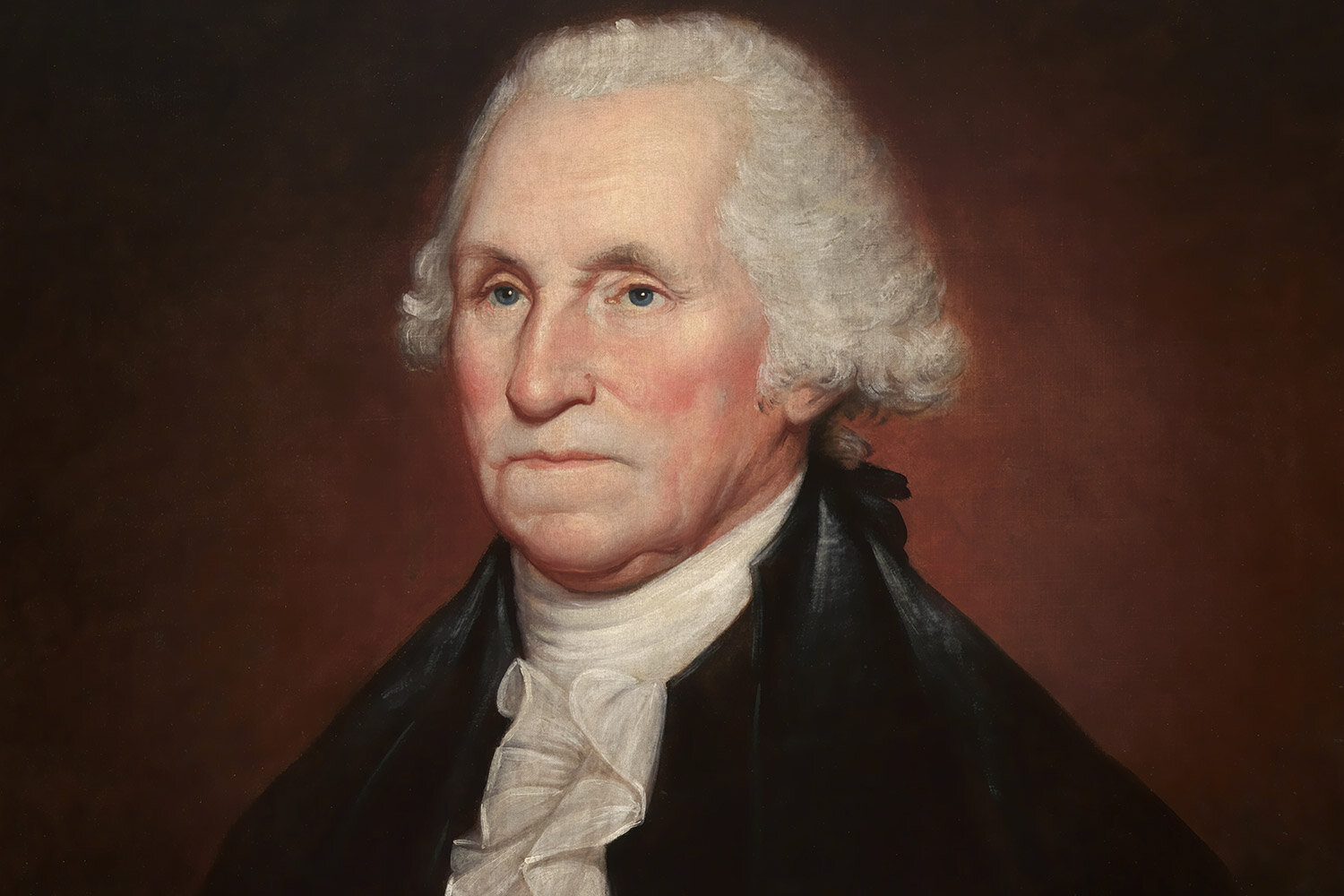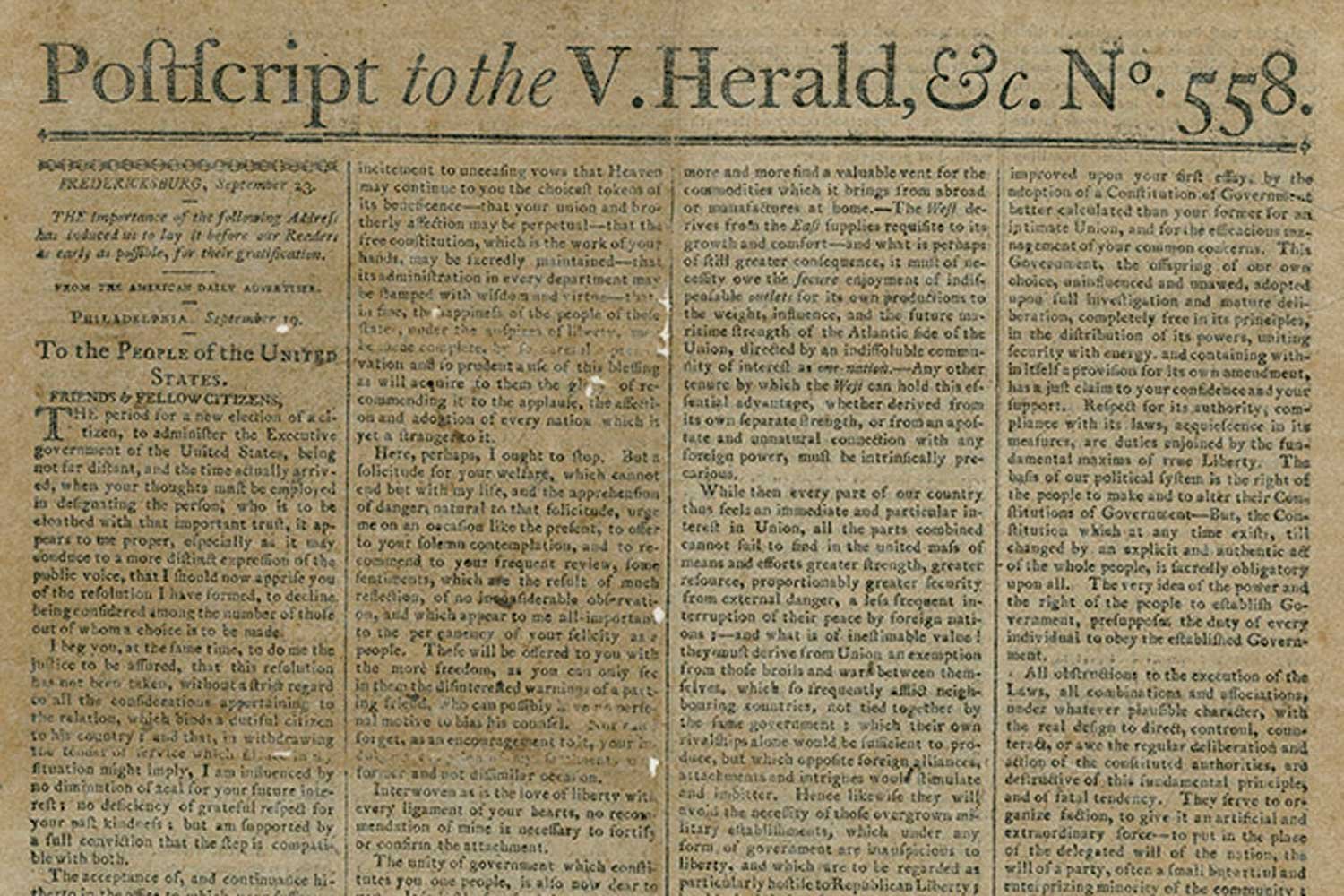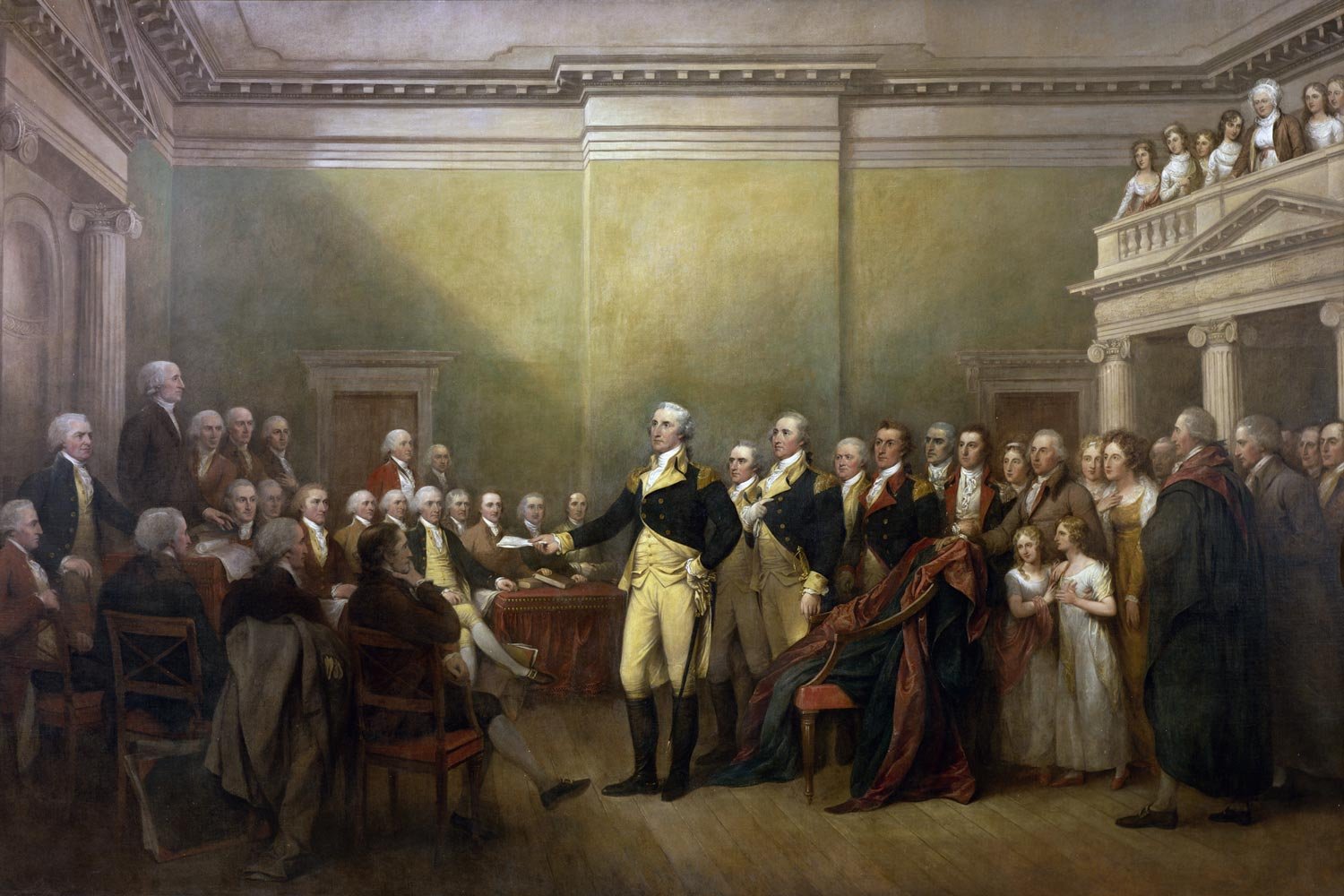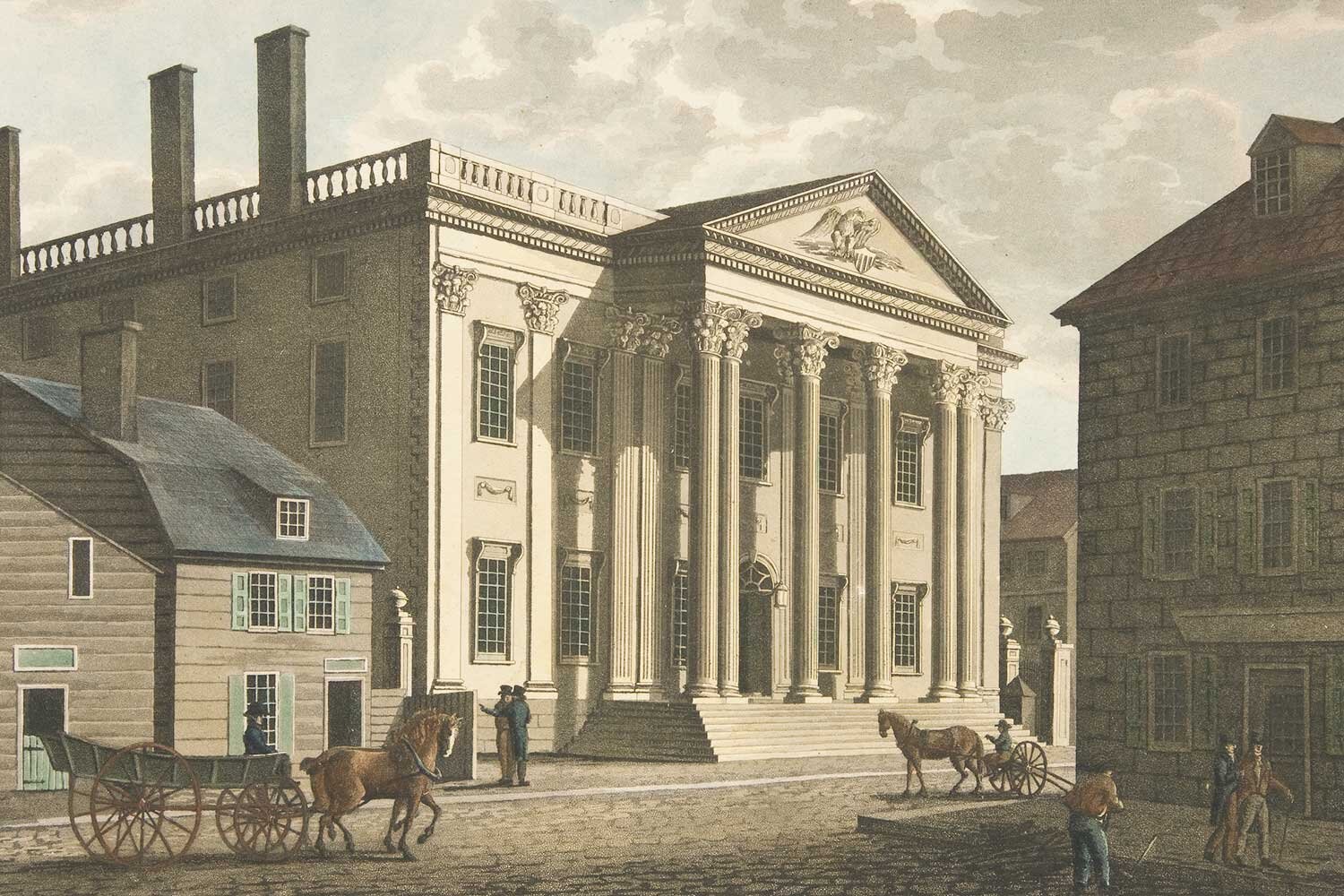Washington’s Farewell Address: One of Our Nation’s Most Significant Documents
George Washington’s Farewell Address is one of the greatest documents in our nation’s history. It was a letter written by President Washington to his fellow citizens as he neared the end of his second term as President. Published in the American Daily Advertiser on September 19, 1796, its purpose was to inform his countrymen that he would not seek a third term as Chief Executive and the reasons why, as well as some fatherly advice for America moving forward.
As President Washington approached the end of his second term, he was ready to retire from public life and return to his beloved estate, Mount Vernon. This was not the first time he felt this way. Four years earlier, as he neared the end of his first term, Washington wanted to step down and asked James Madison to draft a letter announcing this intention.
However, the President worried about the rising tensions between Secretary of State Thomas Jefferson and Secretary of the Treasury Alexander Hamilton. He also worried about increasingly strained relations between the United States and European nations, especially England and France.
Washington felt, as did many others, that without his leadership the bickering would drive the nation apart and perhaps into the arms of a foreign power or at least embroil us in their affairs. This potential situation was one the President wanted to avoid at all costs. Consequently, he agreed to serve another four years.
In any event, there were two main reasons that drove Washington’s decision to not seek a third term. First, quite simply he was no longer a young man. Born on February 22, 1732, by the end of his second term Washington would be 65 years old. While not terribly old by today’s standards, it was in the 18th century.
Moreover, he had spent most of his adulthood in the service of his country, away from home. From May 4, 1775 when Washington left to attend the Second Continental Congress until he returned home after the American Revolution on December 24, 1783, General Washington only spent ten days at Mount Vernon.
Additionally, from April 16, 1789 when George Washington left Mount Vernon to become the President until he returned home at the end of his second term on March 15, 1797, Washington spent only 367 days at his beautiful estate on the banks of the Potomac.
Secondly, Washington’s wanted to step down from power rather than die in office. He had the foresight to recognize that many of his actions were precedent setting and felt it was important to avoid one that implied the President was a life-long appointment, much like a monarchy.
Today, we may not appreciate the magnitude of this decision, nor the incredible uniqueness of it. However, in the 1700s, rulers of countries simply did not surrender their position. Kings, czars, popes, emperors all died in office, but not George Washington.
Much like when this great man voluntarily resigned his commission as Commander of the Continental Army, Washington gave up the power of the Presidency because he knew it was the right thing to do for the country.
WHY IT MATTERS
So why does understanding the background leading up to Washington’s Farewell Address matter to us today?
It is important for us to understand the sacrifices Washington made throughout his life to help his country prosper. His willingness to do what needed to be done, to do his duty, set an example for today’s Americans to follow.
It also imperative for us to appreciate the uniqueness of Washington’s decision to surrender power and its lasting impact on our country. Imagine the countless political issues and the turmoil America would have experienced if Washington had turned the Presidency into a sort of elected monarchy.
Try to contemplate an America in which the occupant of the White House could not be removed except by death or overthrow. You do not have to consider that dreadful thought too long before you realize what we owe the genius of Washington.
SUGGESTED READING
There are several excellent books on the life of George Washington. One of the best single volume editions is Joseph Ellis’ His Excellency, George Washington. Published in 2004, it is a thorough account of the life of the Father of our Country.
PLACES TO VISIT
George Washington Birthplace National Monument, located in Westmoreland County, Virginia, is a wonderful place to visit. The site was first developed by John Washington, George’s great grandfather, in the 1730s. It has a nice visitor center, restored buildings and beautiful grounds.
Until next time, may your motto be “Ducit Amor Patriae,” Love of country leads me.






In his Farewell Address, President Washington shared his thoughts on several topics, including the need for America to remain fiscally prudent and to avoid permanent foreign alliances that could pull America into a costly war. With the fighting raging again in Europe, this time thanks to Revolutionary France, and with much sentiment favoring the French, Washington felt it necessary to advise a neutral course for the United States.